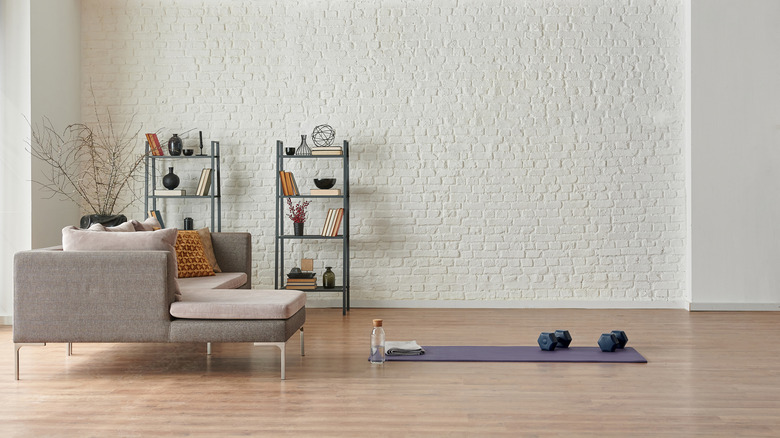Tips On Renovating A Home Once The Kids Have Moved Out
So, your kids have finally moved out? With extra disposable income at your fingertips, you may be wondering what you can spend your hard-earned cash on. One thing that many empty nesters do once their grown children leave home is to renovate their space. Not only do they have extra money to use on small and extensive projects, but they also have the space and time to create the house of their dreams. Let's face it; it can be difficult to conduct renovations when children are running around the place and leaving toys or other stuff everywhere.
Besides allowing you to create the space that you've always dreamed of, renovating your home has several benefits. According to Dave Fox, property renovations can increase the value of the place and help you stay where you are for a longer time. If you're interested in revamping your home after the kids have moved out, here are a few tips that can help.
1. Create a budget
Whether you want to renovate your living room or kitchen, budgeting is essential. By creating a budget, you can set yourself up for success and ensure you have enough funds to accomplish the projects you want without going into crippling debt. According to First Republic, budgeting allows you to allocate your money smartly and can help you reach your specific goals. Plus, those funds ensure you have the necessary money to cover unexpected expenses during the renovation process.
If you need help creating a budget, one of the most significant tips that can help you get started is to evaluate how much money you can afford to spend on the renovations you're interested in. Once you determine what you have to play with, you can look for contractors, materials, or supplies within that range. If you're planning on renovating your home once your kid moves out, it's best to start planning early, especially if you're interested in something extensive.
2. Renovate smartly
If you're on a limited budget, it's important to be smart about the renovations you're planning to make. For example, one large-scale renovation could be to add solar panels to your home. While this may be a hefty investment at first, you can reap the benefits in the long term with lower electric bills. The idea here is to be savvy with your money to complete your desired revamps. Doing so can even help you save money.
Another idea is a multifunctional room that you can use for an array of activities. For example, You can create a home office that doubles as a guest room for friends and family. Build with Ferguson suggests that creating a dual-purpose room allows you to maximize your space and use it to its fullest potential. If you're interested in creating a multipurpose room, think about how you'll primarily be using the space and any secondary functions it could have.
3. Downsize your home
If your kids moved out, you might think your home feels smaller and emptier. So, you may be looking to downsize as a result. Not only can downsizing prevent you from having too much space that you won't use, but it can also save you money.
For example, you can sell your current house to purchase a smaller property with a less expensive mortgage, which means lower monthly payments. This can be extremely beneficial if you're retired and need to make your income last longer. According to Reallymoving, downsizing can also lower other bills and reduce the amount of upkeep on your home.
However, downsizing also has a few disadvantages that you may need to consider. For example, if your area's real estate market is extremely competitive, you may no longer live in the neighborhood you want or near your loved ones. You'll also have to learn how to make a small space feel bigger. On the other hand, if you do not want to move, you can rent the space you no longer use, like the basement or upper floor, and make some extra cash.
4. Make safety and comfort a priority
Let's face it; you're not getting any younger and may require more assistance in the future now that your kids have moved out. For example, walking inside the tub or reaching tall cabinets may be challenging in a few years' time. While this can seem scary, several renovations can make aging in place and in the comfort of your home much easier and less intimidating. For example, AssistedLiving suggests widening doorways, installing ramps, getting some safety bars in the tub and shower, setting up assistive technology and medical alert systems, and purchasing assistive seating.
Even though you may feel like you're in your prime and are still young, the modification recommendations from Assisted Living can make your life much easier down the line. Don't wait until it's too late to modify your place if you're planning to live out your golden years in it when the time comes.
5. Keep it simple
You don't have to go all out with your renovations. In fact, a little splash of paint, new furniture, and refreshed hardware can go a long way; and not only can these types of revamps be less expensive, but they may also take less time. So, you can enjoy the fruits of your labor much more quickly. Plus, simple renovations can be done by you as you see fit and not a contractor, ensuring no strangers enter your home.
A few non-major renovations you can do include installing new light fixtures, updating cabinetry, improving your landscaping, installing new wallpaper, and refinishing floors. Even the easiest, simplest renovations can help boost your property's curb appeal. If you don't believe us, Travelers recommends you make straightforward upgrades, including sprucing up the front door, painting the walls, reviving the bathroom, and deep cleaning to make your home more appealing — especially during the selling process if that's the path you're taking.
6. Increase the value of your home
No matter what types of renovations you make, ensure that they're increasing the value of your home. By raising your property's value, you can ensure a profitable sale after your kids move out. So while you may not intend to sell your house, you may change your mind later.
Your home's value will naturally rise over time, but certain things can cause it to decrease. According to Orchard, residences that look like they need a lot of TLC can lack curb appeal, which can drive the value down. As such, it's best to spruce up your spaces with attractive colors, brand-new fixtures, better landscaping, clean windows, and so on. However, make sure that all upgrades and renovations look good and professional; otherwise, poor updates can bring down the value of your house. A lack of maintenance can also decrease your home's value. If you're a homeowner, make sure to stay on top of the property's maintenance by making necessary repairs.
7. Think of your family
If your family is growing rapidly, you may want to consider making renovations that'll impact your kids, grandkids, and great-grandkids the most — for example, turning spare rooms into guest bedrooms so that your kids and their families have somewhere to stay if they're visiting. Another instance is building a playground in your backyard for your grandkids to spend their time while they visit. You can also increase the size of your entertainment areas to accommodate your growing family.
While an empty nest can be a scary thing, there are many renovations you can make to enhance your living experience in a kid-free home while also ensuring that your family is taken care of during their visits, and improving your life as you grow older. Plus, there are several benefits to renovating, including increasing the property's value and creating your dream space (via RJ Turner Remodeling). Don't be afraid to upgrade your home once your children move out; you may be surprised by the outstanding outcome.







